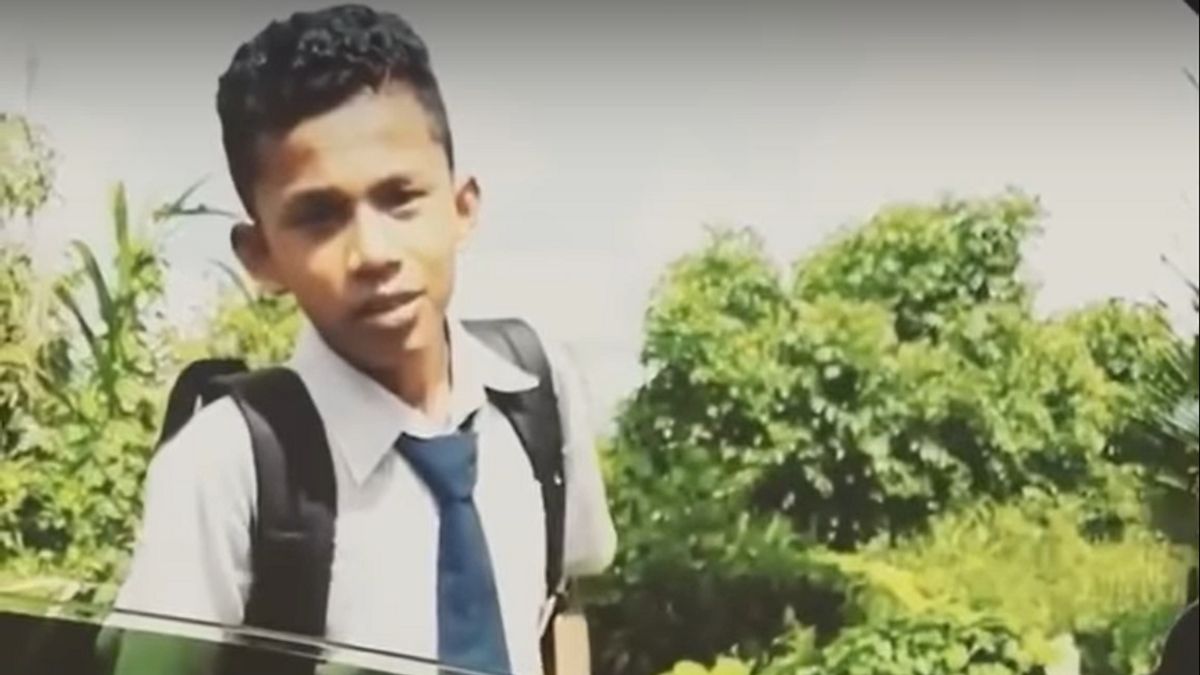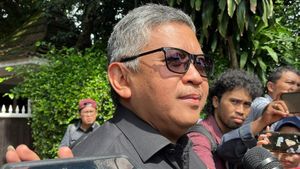JAKARTA - YouTuber, Fiki Naki is increasingly in the spotlight after the content of his collaboration with Dayana, a beautiful girl from Kazakhstan, went viral. The content of the chats with foreigners on OmeTV attracted large audiences. Fiki Naki's multilingual ability often spurs people to learn many languages. We discussed this with a doctor of English education to discuss why some people absorb English learning so easily when so many people "don't speak English."
We start with Fiki Naki. The man from Pekanbaru, born July 24, 2000, is known to be fluent in English, Russian, Spanish, Romanian. Because he often approaches women with his language skills, Fiki Naki has been called an international class 'fakboi'.
YouTube video content he uploaded last January 11, for example. In the video, Naki meets Dayana on OmeTV. It was in that meeting that Naki showed off. He started a conversation with Dayana in English. Naki said English is his second language after Indonesian.
After the conversation started flowing, Dayana, who was broadcasting with her friend, was flabbergasted when Naki found out what the two of them were talking about in Russian. Dayana, who previously praised Naki's good looks, was even more impressed by Naki's Russian language skills.
In the gimmick of the show, Dayana suddenly asks Naki to get married. Naki said yes. The story doesn't end there. Dayana was even more amazed when Naki said she was also fluent in Spanish and Italian. Dayana is increasingly curious about the third semester student. Dayana asked Naki how she could learn multilingualism.
"You're really cool. There are people who teach or learn by themselves?" asked Dayana, in Russian. "Study on your own," said Naki.
Naki admits that he has only been studying Russian for a month. However, Naki admits he speaks Spanish better than Russian. Even though he had only been studying the Matador Country language for a week. Naki is awesome, of course. More than that, his statements have piqued our curiosity. How can someone easily learn a foreign language when other people have difficulty.
Important factorTo answer this, VOI contacted an English teacher, Itje Chodijah. He has more than three decades working in the world of teaching and training. According to Itje, there are innate factors in how a person can absorb and practice foreign languages more quickly. That is what makes people's ability to learn different languages.
Itje, who is a doctorate from the UPI English Education Program, Bandung explained this through the perspective of multiple intelligence, which explains that there are nine characteristics of how the human brain works. "There are people who have advantages in the field of space, such as architecture. Then there is mathematical intelligence, language intelligence, interpersonal intelligence, intrapersonal intelligence, natural intelligence related to nature," he said, contacted Tuesday, January 19.
Meanwhile, for people who are more fluent in language, Itje says they have aptitude language or language intelligence. "It's a biological construct."
For example, Itje's own children. Of the two Itje children, there is one who has very high language intelligence. "Once he learns Italian, he immediately picks up on it, then when he uses the language, the intonation is very similar to that of Italian."

Itje's opinion was strengthened by a study published in The Journal of Neuroscience in 2016. The study, cited by the Daily Mail, revealed that there are neural connections between various tissues in the brain called the superior temporal gyrus (STG). STG is the part of the brain that lies near the upper ear.
From there it is known that various regions in the human brain communicate with each other even when a person is resting. And the strength of the connection varies by individual.
However, said Itje, there is no one who does not have any talent for language at all. "Only, those who have high language aptitude can be faster. It's just a matter of how fast it is," he said.

Therefore, Itje explained it made sense that someone could learn a foreign language in just one week, as Naki claimed. According to him, how many methods are used is a determining factor whether someone can do this or not.
"It depends, if he studies ten hours a day, maybe he can do it. Not how many days, but how long he uses the language and how effective is the approach adopted in the learning," Itje explained.
Why is it difficult?However, not everyone has a brain like Naki's. In fact, not a few people feel that they have learned a foreign language for years but still cannot master it. Why did that happen?
Education expert Itje Chodijah has the answer. He said, to overcome this, we need to know what the goal is to learn a language.
"Do you want to communicate? Do you want to be able to make a report in English? Or what do you want? So the goal is determined. Now the success will be determined by that goal, whether it is achieved or not," explained Itje.
Because said Itje, learning the language is never finished. "Even though I have taught English for a long time, trained English teachers, there are still certain areas that need to be studied," he said.
This explanation fits Naki's experience. In the YouTube video, Naki confessed to Dayana that he was actually rather weak in terms of theory, he was only superior in speaking foreign languages.
In addition, another factor that makes it difficult to learn a foreign language is that we are afraid of making mistakes. "The grammar was wrong, it haunted him for a long time. So what arises the most is the fear of being wrong," said the man who studied the Masters from Britain's Marwick University.
Correct methodStill according to Itje, it cannot be denied that motivation is one of the biggest factors determining a person's success in learning a foreign language. While the second number should not feel greedy.
"Maybe, in the context of Indonesia, learning the language is what everyone wants, good grammar. No, people can't automatically get everything," said Itje.
Itje gave an example, when the purpose of learning is to speak, one should be able to start haltingly. Then when we are often trained with other people who speak English, "there will be a mechanism within us to correct ourselves," he said.
"When I say 'oh yeah it should be like this huh.' The more often we correct our own mistakes, the better, "Itje explained.
Therefore, to be able to master a foreign language, we must master the strategy. "And there is only one learning method: keep practicing," he concluded.
The English, Chinese, Japanese, Arabic, and French versions are automatically generated by the AI. So there may still be inaccuracies in translating, please always see Indonesian as our main language. (system supported by DigitalSiber.id)









